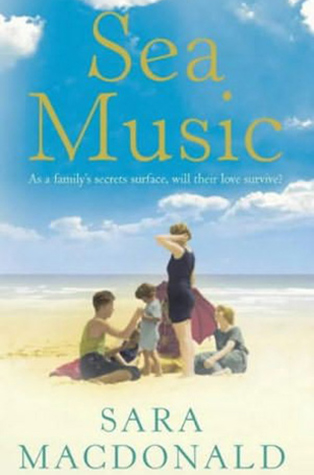
Sea Music
About the book
A beautifully written novel with great emotional appeal, of family secrets and wartime heritage, set in Cornwall, London and Warsaw.
The house opposite the village church, overlooking the Cornish coast has been home to three generations of the Tremain family. Fred Tremain, the country doctor, came to this beautiful corner of England with his wife, Martha, after the war. Anna, their difficult, determined older child, is now a successful solicitor. Barnaby, the easy-going second child is now vicar to the parish. Also making her home there is their granddaughter, Lucy. It is Lucy who discovers family papers hidden in the old attics and brings to light the first of the long hidden wartime secrets. As each layer is slowly unwrapped Anna begins to understand the frightening missing pieces of her childhood and Barnaby is shocked into understanding why their parents denied them the truth. As a family the reverberations of war has had far reaching consequences but also forces them all to question their own relationships, fears and sibling rivalry and find the courage to discover new loves and a different way of living.
Sara MacDonald has created a wonderful range of characters, depicted with great tenderness and understanding, against a background of the human price paid for the upheavals caused by prejudice, violence and wars today and yesterday. A wonderful novel for all the fans of Anita Shreve, Niall Williams and Rosamund Pilcher.
Reviews
‘A beautifully written tale.’ Belfast Telegraph
‘a tender story about three generations of a family touched by prejudice, violence and war.’ Woman’s Own
A note about ‘Sea Music’ from the author
I was walking along a creek path one summer evening when I met an elderly woman walking her dog and we fell into conversation. She moved slowly with the aid of sticks and she worried that she was slowing me down and spoiling my walk. She almost casually explained that she needed sticks because the Germans had injected arsenic into her bones during the war. Horrified, the hairs rose up on the back of my neck. She told me that a liberating Cornish soldier had found her, taken care of her, got her to England, married her and brought her back to Cornwall with him.
Together, they had built a house overlooking the creek and had lived a happy life together. He had just died and the woman was lost without him. She came down to walk by the water each evening, when the paths were quiet to remember him.
It was now dark and the woman urged me to go back to my car. When I got home I realised that in the shock of her startling revelation I had not even asked her name or where she lived. For months I searched for the woman on the creek path from first thing in the morning to dusk. I never saw her again and I began to wonder if the encounter had ever really happened.
The years passed but I never forgot her. One day I started to write a story based on that brief encounter. I made an imaginary life for her. I researched and immersed myself in the holocaust for three years. When I finished the book I dedicated it to my unknown woman. Somehow, I felt she must be dead.
I was talking to a friend about my book when she excitedly declared that she was sure she knew who my old lady was. She had just got married again at the age of eighty. She found me a telephone number and I rang her with trepidation. It was unlikely that she would remember me after so many years, but remember me she did.
It was the start of a close and wonderful friendship that lasted many years. I left the manuscript with her. The only thing she asked me to change was the ending. She wanted the book to end on a positive note, with the next generation, with a birth, not with a death.
I visited her as often as I could, but not often enough. We had long conversations on the telephone. She was always interested in what I was writing next. Sadly, her second husband died and she was alone again. With failing health she had to go into a nursing home. Her body was frail but her mind was as sharp as ever. I visited her there until she died two years ago. I loved her very much and what I choose to remember of that special lady is a photograph tacked onto the wall of the small stuffy room where she ended her days. It was of a beautiful young girl with her life in front of her, smiling in a field full of flowers, somewhere in Slovakia..
Published by Harper Collins Publishers Ltd
ISBN 978-0-00-715073-1